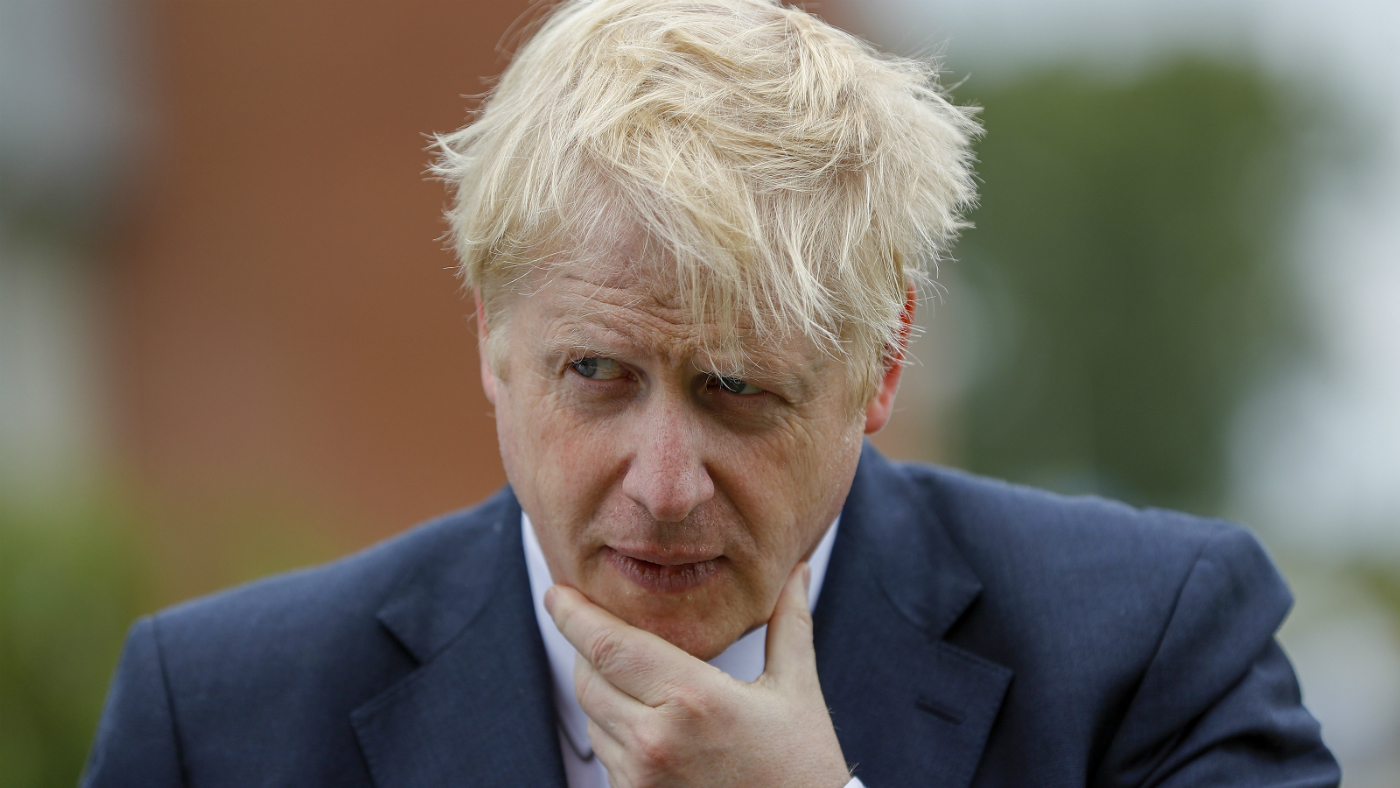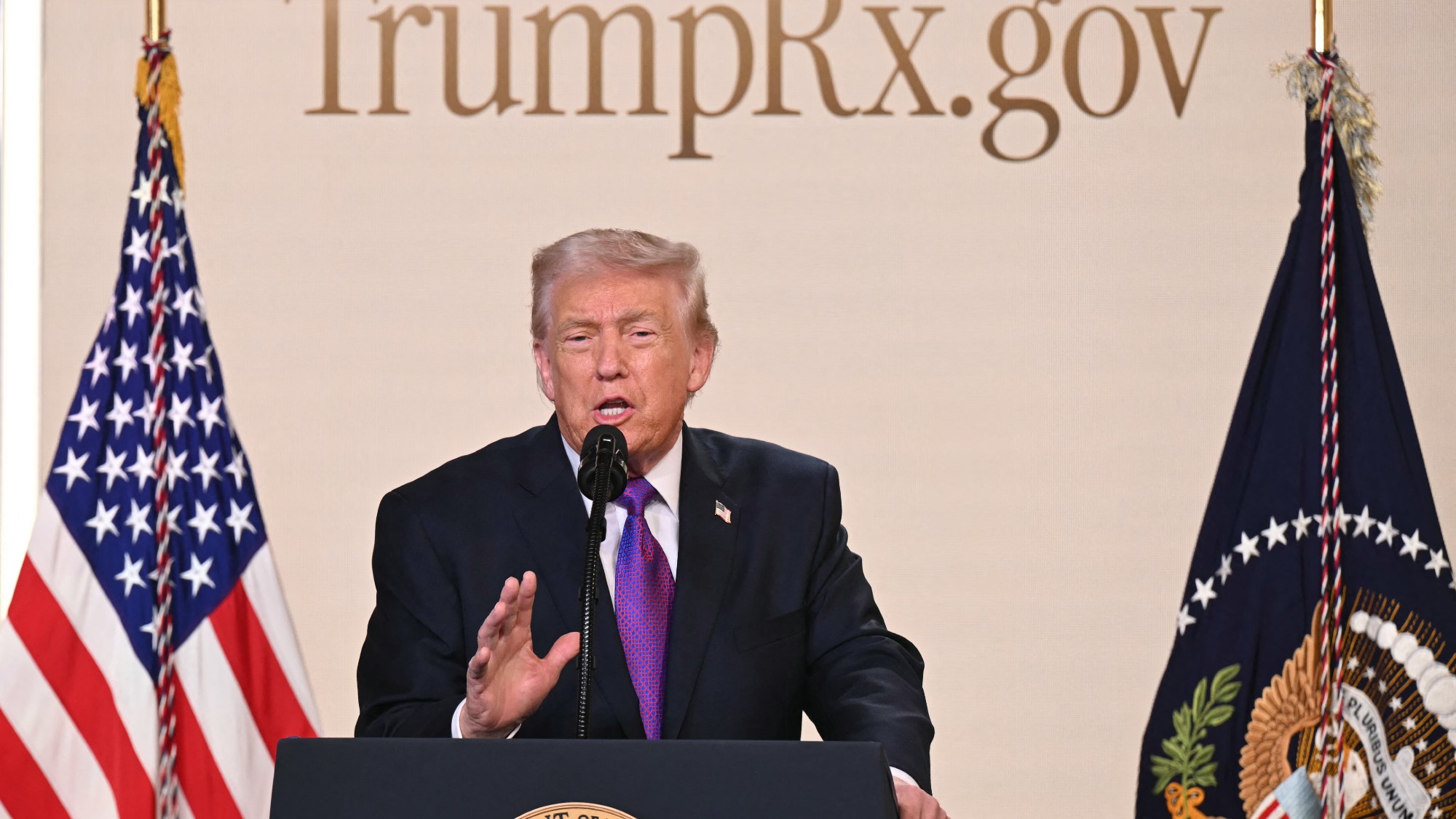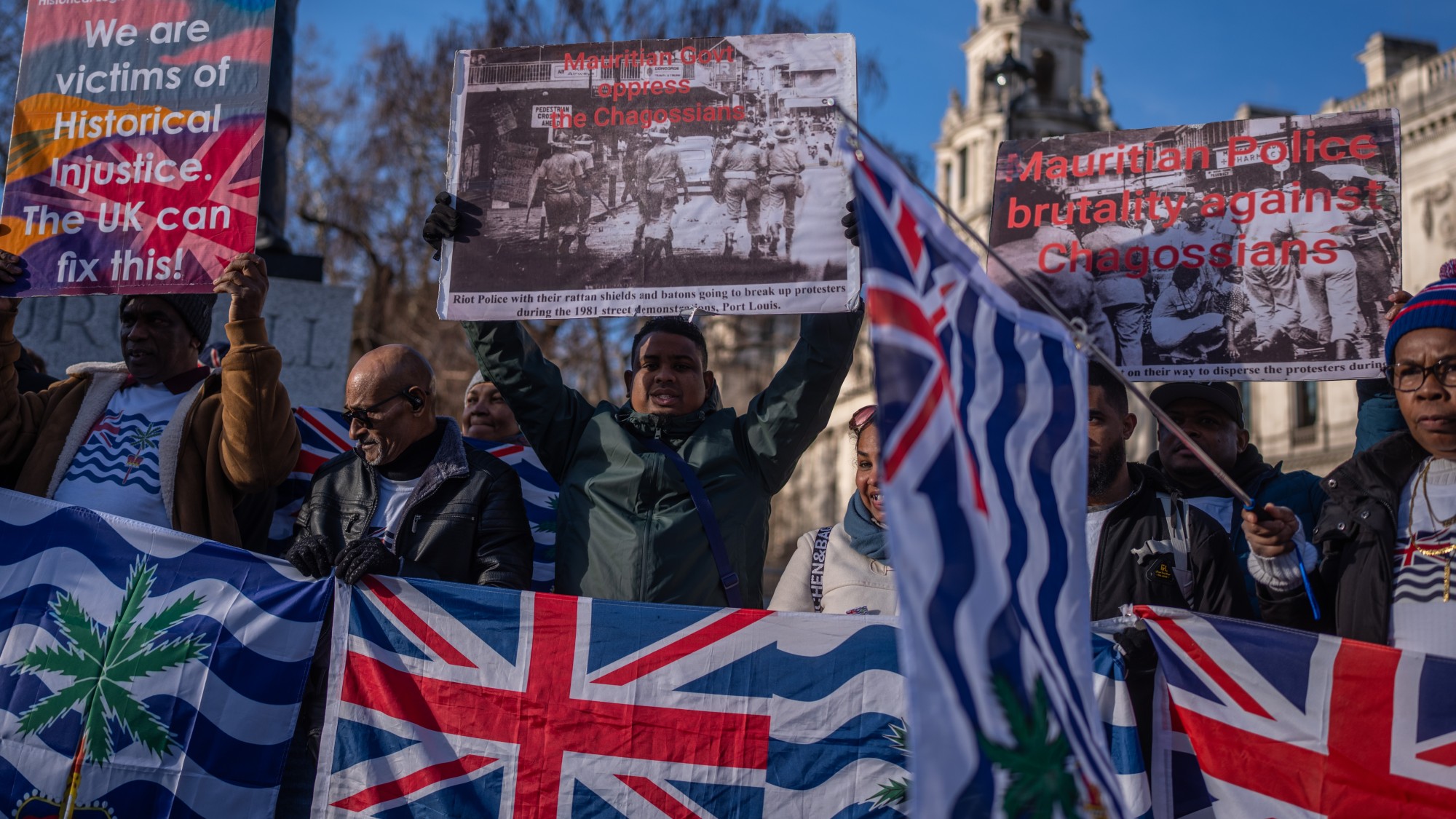Brexit deal agreed, says Boris Johnson
New deal that scraps the backstop is ‘even worse’ than May’s attempt, says Jeremy Corbyn

A free daily email with the biggest news stories of the day – and the best features from TheWeek.com
You are now subscribed
Your newsletter sign-up was successful
A new Brexit deal between the UK and EU has been agreed, says Boris Johnson.
egotiating teams from the two sides have been working on the legal text and came to an agreement on Thursday morning. However, it will still need the approval of both the UK and European parliaments, says the BBC.
The Prime Minister said on Twitter: “We’ve got a great new deal that takes back control.
The Week
Escape your echo chamber. Get the facts behind the news, plus analysis from multiple perspectives.

Sign up for The Week's Free Newsletters
From our morning news briefing to a weekly Good News Newsletter, get the best of The Week delivered directly to your inbox.
From our morning news briefing to a weekly Good News Newsletter, get the best of The Week delivered directly to your inbox.
“The anti-democratic backstop has been abolished. The people of Northern Ireland will be in charge of the laws that they live by, and – unlike the backstop – will have the right to end the special arrangement if they so choose,” he added in a further tweet.
But Labour leader Jeremy Corbyn said Johnson’s deal was “even worse” than that negotiated by Theresa May, saying it “should be rejected” by MPs.
And Brexit party leader Nigel Farage said the new deal was “not Brexit”.
But the European Commission President Jean-Claude Juncker called it a “fair and balanced agreement”.
A free daily email with the biggest news stories of the day – and the best features from TheWeek.com
And European Council President Donald Tusk said: “It is high time to complete the withdrawal process and move on, as swiftly as possible, to the negotiation on the European Union’s future partnership with the United Kingdom,” The Guardian reports.
A deal had been expected today after Michel Barnier, the EU’s chief negotiator, said last night that an agreement was all but agreed and ready for a formal sign-off today, while German Chancellor Angela Merkel said that the “final sprint” had made her confident of a breakthrough.
However, the Prime Minister’s progress with Brussels could stall back in Westminster, where Northern Ireland’s Democratic Unionist Party (DUP) has so far refused to sign off on Johnson’s draft agreement.
The DUP released a statement saying it could not back proposals “as things stand”, and - after Johnson’s announcement - said that statement “still stands”.
–––––––––––––––––––––––––––––––For a round-up of the most important stories from around the world - and a concise, refreshing and balanced take on the week’s news agenda - try The Week magazine. Get your first six issues for £6–––––––––––––––––––––––––––––––
Numerically, the DUP is seen as crucial because its own direct influence is enhanced by the promises of several Brexiteer MPs that they will only vote for a deal if the unionist party backs it.
The DUP continues to have reservations over the plans for the Irish border question, including how much say it will have over the arrangements in the future, and a late row over whether EU rates of VAT should apply in Northern Ireland is also proving an obstacle.
MPs could now decide later today whether the Commons will sit this Saturday after the EU summit, so Johnson can put his deal to MPs.
This Saturday is seen as a huge milestone for the PM because the Benn Act, passed by MPs trying to prevent a no-deal Brexit, legally obliges him to write to the EU asking for a delay if parliament does not agree to a deal by then.
One EU ambassador said a political rather than legal agreement was the most that could be hoped for this week, explaining: “We have not seen texts and done legal scrubbing. We will need more time for that.”
They added: “It is too late to give a final ‘yes’ tomorrow. We can give a political ‘yes’ and then come back to it.”
If they are right, Johnson looks set to be forced to break his “do or die” pledge to take Britain out of the EU by 31 October.
-
 Democrats seek calm and counterprogramming ahead of SOTU
Democrats seek calm and counterprogramming ahead of SOTUIN THE SPOTLIGHT How does the party out of power plan to mark the president’s first State of the Union speech of his second term? It’s still figuring that out.
-
 Climate change is creating more dangerous avalanches
Climate change is creating more dangerous avalanchesThe Explainer Several major ones have recently occurred
-
 What’s TrumpRx and who is it for?
What’s TrumpRx and who is it for?The Explainer The new drug-pricing site is designed to help uninsured Americans
-
 Can Keir Starmer save the Chagos deal?
Can Keir Starmer save the Chagos deal?Today's Big Question Opponents confident they can scupper controversial agreement as PM faces a race against time to get it over the line
-
 How corrupt is the UK?
How corrupt is the UK?The Explainer Decline in standards ‘risks becoming a defining feature of our political culture’ as Britain falls to lowest ever score on global index
-
 The high street: Britain’s next political battleground?
The high street: Britain’s next political battleground?In the Spotlight Mass closure of shops and influx of organised crime are fuelling voter anger, and offer an opening for Reform UK
-
 Biggest political break-ups and make-ups of 2025
Biggest political break-ups and make-ups of 2025The Explainer From Trump and Musk to the UK and the EU, Christmas wouldn’t be Christmas without a round-up of the year’s relationship drama
-
 ‘The menu’s other highlights smack of the surreal’
‘The menu’s other highlights smack of the surreal’Instant Opinion Opinion, comment and editorials of the day
-
 Is a Reform-Tory pact becoming more likely?
Is a Reform-Tory pact becoming more likely?Today’s Big Question Nigel Farage’s party is ahead in the polls but still falls well short of a Commons majority, while Conservatives are still losing MPs to Reform
-
 Asylum hotels: everything you need to know
Asylum hotels: everything you need to knowThe Explainer Using hotels to house asylum seekers has proved extremely unpopular. Why, and what can the government do about it?
-
 Taking the low road: why the SNP is still standing strong
Taking the low road: why the SNP is still standing strongTalking Point Party is on track for a fifth consecutive victory in May’s Holyrood election, despite controversies and plummeting support